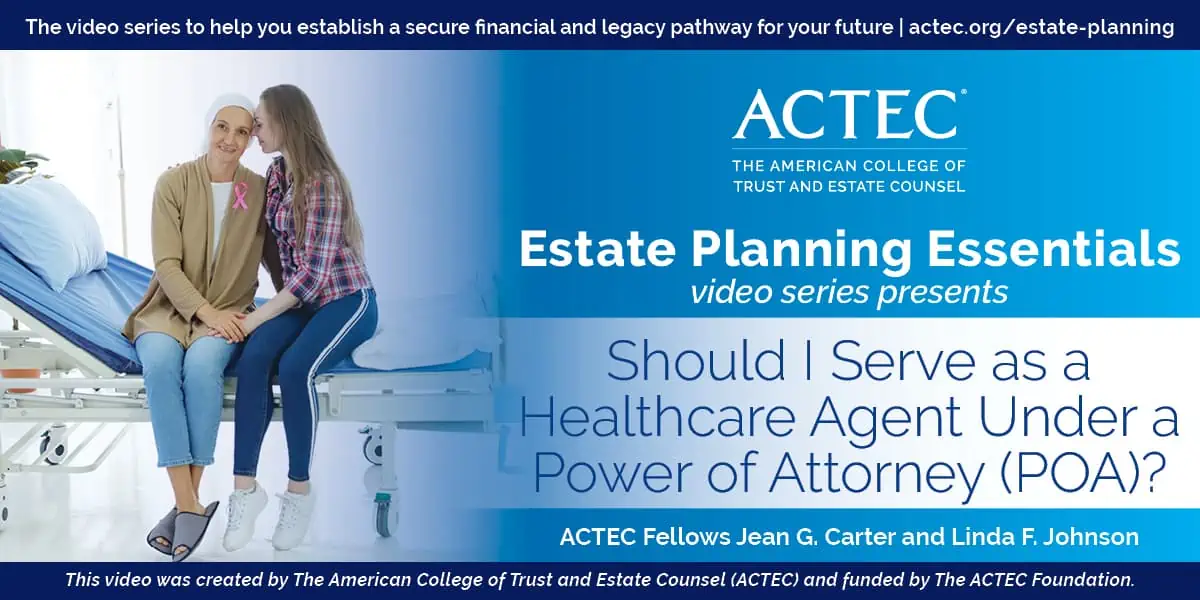Understand what you need to know about accepting the legal responsibility of a healthcare agent, aka a healthcare surrogate or healthcare proxy.


Understand what you need to know about accepting the legal responsibility of a healthcare agent, aka a healthcare surrogate or healthcare proxy.
Understand what’s involved in the role of a property or financial Power of Attorney (POA), what’s entailed, and what questions you should ask yourself.
Estate lawyers share tips for individuals living alone on how to plan for incapacity or illness for an extended amount of time and provide a review of critical power of attorney documents.
Estate lawyers share tips for individuals living alone to prepare for a healthcare or medical emergency, including a checklist and contact forms.
Recommendations for how and when to talk with your family about your estate plan, will and other documents by expert trust and estate attorneys.
Trust and estate lawyers offer recommendations for how to have critical conversations with your parents about end-of-life planning and estate documents.
Advance directives are documents that express an individual’s health care wishes. Learn more about a Living Will, Healthcare Proxy, MOLST, POLST, and DNR orders.
What legal documents should we have in place to prepare for an emergency, such as the Coronavirus pandemic?
Understand what documents you should discuss and prepare for your college-bound and young adult when they turn 18, a legal adult.
Understanding your Power of Attorney (POA) is critical in estate planning. Bernie Krooks, a nationally-recognized expert shares his expertise in this video.